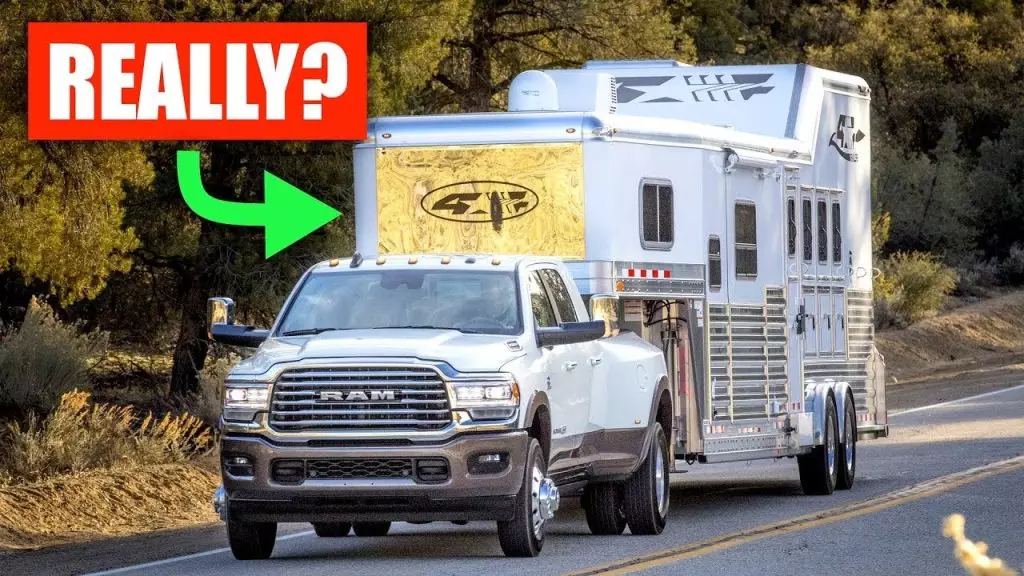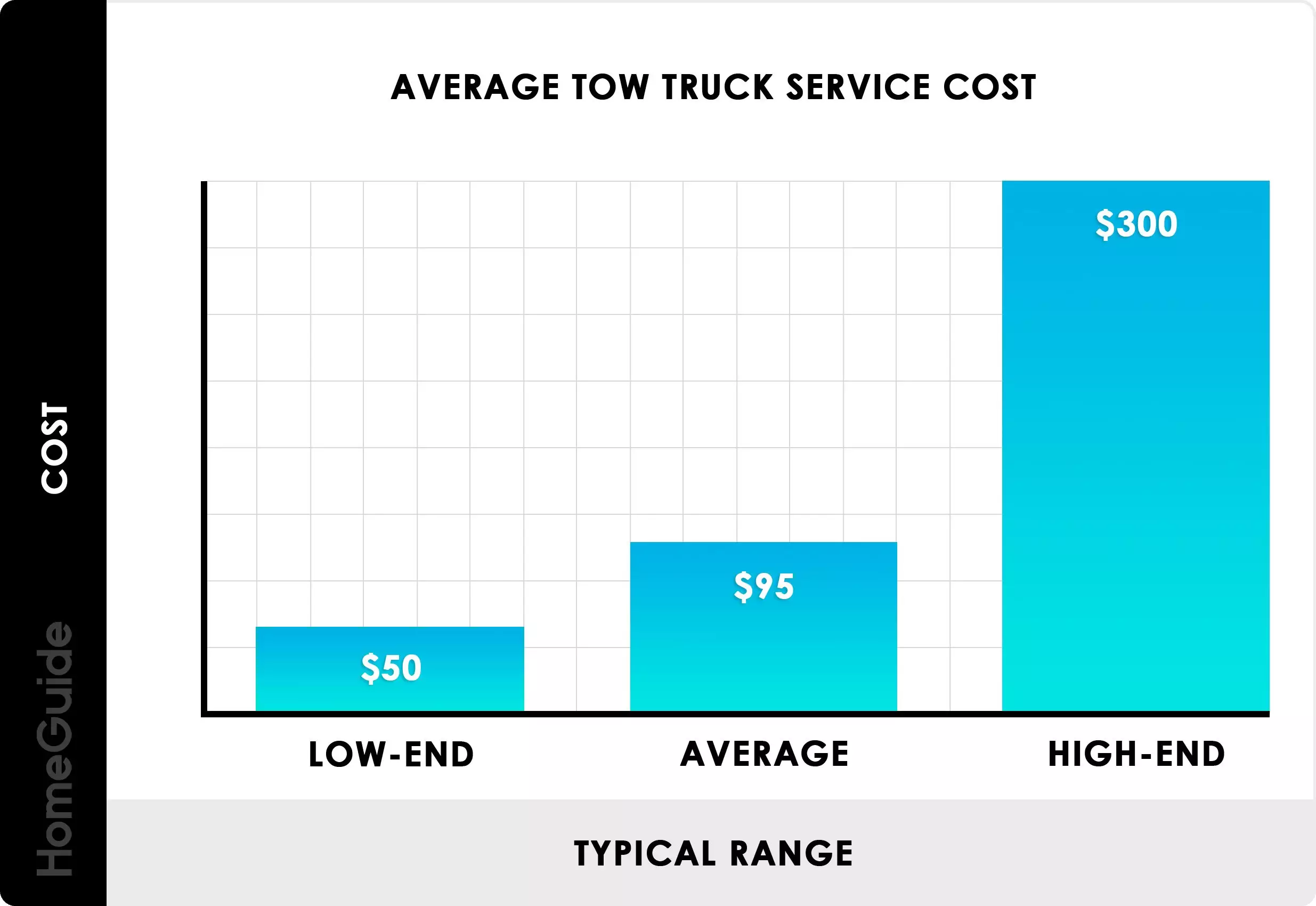Ever wondered how much weight a typical truck can haul? Look no further! In this article, we explore the impressive towing capacity of an average truck and why it matters. From heavy-duty work trucks to everyday pickups, we uncover the remarkable capabilities that make these vehicles essential for a variety of tasks. Whether you’re a truck enthusiast or simply curious about their incredible strength, get ready to be amazed at what these machines can tow.
Weight Capacity
When it comes to towing, understanding weight capacity is crucial for both safety and efficiency. There are several key terms and factors to consider in order to determine the towing capacity of a truck. In this article, we will explore the different aspects of weight capacity and provide a comprehensive guide to towing.
Gross Vehicle Weight Rating (GVWR)
The Gross Vehicle Weight Rating, or GVWR, is the maximum weight that a fully loaded vehicle can safely carry, including passengers, cargo, and fuel. It takes into account the vehicle’s chassis, suspension, brakes, and other components. It is important to note that exceeding the GVWR can lead to damage to the vehicle and compromise safety on the road.
Curb Weight
Curb weight refers to the weight of the vehicle when it is empty, excluding passengers and cargo. It includes the weight of the vehicle’s body, chassis, engine, and fluids, such as fuel and coolant. This weight is important to consider when determining the payload capacity of the truck.
Payload Capacity
Payload capacity is the maximum weight that a vehicle can carry, including passengers, cargo, and any additional equipment. It is calculated by subtracting the curb weight from the GVWR. It is essential to adhere to the payload capacity to ensure safe and efficient towing.
Towing Capacity
Towing capacity refers to the maximum weight that a vehicle can tow, including the weight of the trailer and its contents. It is important to note that the towing capacity may vary depending on the specific vehicle and its configurations. It is crucial to know the towing capacity of your truck before attempting to tow a trailer.
Types of Trailers
There are various types of trailers available for different purposes. Understanding these types can help you choose the right trailer for your towing needs. Here are some of the most common types of trailers:
Travel Trailers
Travel trailers are among the most popular types of trailers for recreational purposes. These trailers range in size and amenities, from compact trailers suitable for small families to larger trailers with fully equipped kitchens, bathrooms, and sleeping areas. They are towed by a hitch mounted on the back of a truck or SUV.
Fifth-Wheel Trailers
Fifth-wheel trailers are similar to travel trailers but have a unique hitch design that connects to a special fifth-wheel hitch mounted in the bed of a pickup truck. This configuration provides greater stability and allows for larger trailers with more living space. Fifth-wheel trailers are often preferred by those who prioritize comfort and luxury while on the road.
Horse Trailers
Horse trailers are specifically designed to transport horses safely and comfortably. They typically have partitions to separate the horses, as well as ramps for easy loading and unloading. Horse trailers come in various sizes and configurations to accommodate different numbers of horses and their specific needs.
Boat Trailers
Boat trailers are designed to transport boats of different sizes and shapes. They have special features such as adjustable bunks or rollers to support the boat during transportation, as well as a winch to help with loading and unloading. Boat trailers are essential for those who enjoy boating and need to transport their watercraft to different locations.
Utility Trailers
Utility trailers are versatile trailers that can be used for a wide range of purposes. They are often used for hauling equipment, supplies, or personal belongings. Utility trailers come in different sizes and configurations, including open or enclosed designs. They are commonly used by homeowners, business owners, and outdoor enthusiasts.

This image is property of cdn.homeguide.com.
Factors Affecting Towing Capacity
Several factors can influence the towing capacity of a truck. Understanding these factors can help you make informed decisions when it comes to towing. Here are some of the key factors that can affect towing capacity:
Engine Power
The engine power of a truck plays a significant role in determining its towing capacity. A more powerful engine can generate more torque, which is essential for towing heavy loads. It is important to consider the horsepower and torque ratings of the engine when assessing the towing capacity of a truck.
Transmission
The type of transmission can also affect the towing capacity of a vehicle. Trucks with automatic transmissions are generally preferred for towing due to their ability to handle heavy loads more efficiently. Manual transmissions may require more skill and coordination when towing but can still be suitable for lighter loads.
Axle Ratio
The axle ratio refers to the ratio between the number of revolutions the driveshaft makes and the number of revolutions the wheels make. Trucks with higher axle ratios generally have higher towing capacities due to increased torque. It is essential to consider the axle ratio when determining the towing capacity of a truck.
Suspension
The suspension system of a truck determines its ability to handle the weight and stress of towing. A well-designed suspension system can improve stability and control while towing, ensuring a safer and more comfortable towing experience. Upgraded suspension systems may be necessary for heavier loads or off-road towing.
Braking
Proper braking is crucial when towing heavy loads. The truck’s braking system should be capable of handling the increased weight and stopping power required when towing. Upgraded brakes, such as disc brakes or electric trailer brakes, may be necessary to ensure sufficient braking performance.
Frame and Chassis
The strength and design of the truck’s frame and chassis play a vital role in its towing capacity. A sturdy and durable frame can handle the stresses and weight distribution associated with towing. Factors such as frame construction, material, and design should be considered when assessing a truck’s towing capacity.
Cooling System
Towing generates additional heat, placing extra demands on the truck’s cooling system. The engine and transmission need to remain at optimal operating temperatures to ensure performance and longevity. Upgraded cooling systems, such as larger radiators or transmission coolers, may be necessary for towing heavy loads in extreme conditions.
Weight Distribution
Proper weight distribution is crucial for safe and stable towing. It ensures that the weight of the trailer and its contents is evenly distributed between the truck and the trailer. Here are two key aspects of weight distribution to consider:
Tongue Weight
Tongue weight refers to the downward force exerted on the hitch ball by the trailer coupler. It should typically be around 10-15% of the total trailer weight. Proper tongue weight helps maintain stability and control while towing, preventing swaying or fishtailing. It is essential to ensure that the tongue weight is within the recommended range for safe towing.
Gross Combination Weight Rating (GCWR)
The Gross Combination Weight Rating, or GCWR, is the maximum weight of the fully loaded truck and trailer combined. It takes into account the towing capacity of the truck and the payload capacity of the truck and trailer. It is essential to ensure that the combined weight of the truck and trailer does not exceed the GCWR for safe and efficient towing.

This image is property of hips.hearstapps.com.
Three Key Towing Terms
Understanding key towing terms can help you navigate the world of towing and make informed decisions. Here are three essential terms to familiarize yourself with:
Gross Vehicle Weight (GVW)
The Gross Vehicle Weight, or GVW, refers to the total weight of a vehicle, including passengers, cargo, and fuel. When towing, the total weight includes the weight of the truck, trailer, and any additional cargo or equipment. Exceeding the GVW can put excessive strain on the vehicle’s components and compromise safety.
Gross Axle Weight Rating (GAWR)
The Gross Axle Weight Rating, or GAWR, is the maximum weight that can be supported by each axle of a vehicle. It ensures that the axles, suspension, and brakes can safely handle the weight. It is crucial to distribute the weight properly between the axles to avoid overloading and maintain stability while towing.
Gross Trailer Weight (GTW)
The Gross Trailer Weight, or GTW, refers to the total weight of the loaded trailer, including its contents and any additional equipment. It is essential to know the GTW to ensure that it does not exceed the towing capacity of the truck. Exceeding the GTW can strain the truck’s engine, transmission, and braking system, compromising safety.
Safety Considerations
Safety should always be a top priority when towing. There are several considerations to keep in mind to ensure a safe towing experience. Here are some important safety measures:
Towing Mirrors
Towing mirrors are essential for maintaining proper visibility while towing. They extend the driver’s line of sight, allowing a clear view of the trailer and surrounding vehicles. Towing mirrors should be adjusted to provide a wide-angle view and eliminate blind spots, ensuring safe lane changes and turns.
Trailer Brakes
Trailer brakes are an important safety feature that helps control the trailer’s speed and prevent excessive strain on the truck’s braking system. There are different types of trailer brakes, including electric brakes and surge brakes. It is vital to have a properly functioning trailer brake system for safe and controlled braking during towing.
Weight Distribution Hitch
A weight distribution hitch helps evenly distribute the weight between the truck and the trailer, improving stability and control. It uses tension bars or spring bars to transfer some of the tongue weight to the front axle of the truck. A weight distribution hitch is especially useful for towing larger trailers or when the tongue weight exceeds the recommended range.
Trailer Sway Control
Trailer sway can occur when external forces, such as wind or improper weight distribution, cause the trailer to oscillate from side to side. A trailer sway control system can help mitigate this issue by applying brakes or adjusting the trailer’s weight distribution. Some trucks and trailers come with built-in sway control systems, while others require aftermarket installations.
Tire Pressure and Load Rating
Proper tire pressure is crucial when towing. Underinflated tires can lead to excessive heat buildup and potential blowouts, while overinflated tires can result in reduced traction and stability. It is important to check the tire pressure regularly and ensure that the tires have the appropriate load rating to handle the weight of the trailer.
Proper Loading and Cargo Placement
Distributing the cargo properly inside the trailer is essential for maintaining stability while towing. The heaviest items should be placed over the trailer’s axles to evenly distribute the weight. It is also important to secure the cargo to prevent shifting during transit, which can affect stability and control.
Awareness of Road Conditions
Being aware of road conditions is vital for safe towing. Certain conditions, such as strong crosswinds, steep grades, or slippery surfaces, can significantly impact stability and control. Adjusting driving techniques, reducing speed, and maintaining safe distances from other vehicles can help mitigate the risks associated with challenging road conditions.

This image is property of i.ytimg.com.
Legal Requirements
Before towing, it is crucial to understand and comply with the legal requirements related to trailers and towing. Here are some key considerations:
Trailer Regulations
Different jurisdictions may have specific regulations and requirements regarding trailer size, weight, lighting, and safety features. It is important to familiarize yourself with the regulations in your area to ensure compliance and avoid potential fines or penalties.
Commercial and Non-commercial Licensing
Depending on the weight and type of trailer, you may need to obtain a special license or endorsement. Commercial trailers may require a commercial driver’s license (CDL), while non-commercial trailers may require a specific class of driver’s license or endorsement. Familiarize yourself with the licensing requirements in your jurisdiction to ensure legal compliance.
Trailer Registration and Insurance
Most trailers need to be registered and insured, just like any other vehicle. The registration process may involve providing documentation such as proof of ownership, title, and any necessary inspections. It is essential to contact the appropriate authorities to register and insure your trailer according to local regulations.
Maximum Speed Limits
Different jurisdictions may have varying speed limits for vehicles towing trailers. It is important to be aware of and adhere to these speed limits to ensure safety and legal compliance. Driving at appropriate speeds allows for better control and responsiveness, reducing the risk of accidents or mishaps.
Roadway Restrictions
Certain roads or areas may have restrictions on trailer length, width, or weight. This is particularly relevant when towing larger trailers or traveling through urban areas or residential neighborhoods. Understanding and abiding by these roadway restrictions is essential to avoid fines and ensure safe passage.
Popular Truck Models and Their Towing Capacities
When it comes to towing, different truck models offer varying towing capacities. Here are some popular truck models and their towing capacities:
Ford F-150
The Ford F-150 is a versatile and capable truck known for its towing prowess. Depending on the engine and configuration, the towing capacity of the F-150 can range from around 5,000 pounds to over 13,000 pounds. The F-150 offers a range of features and options to enhance towing performance, such as integrated trailer brake controllers and advanced towing assist systems.
Chevrolet Silverado 1500
The Chevrolet Silverado 1500 is a reliable and powerful truck that can handle a range of towing needs. With different engine options and configurations, the Silverado 1500 can tow anywhere from around 7,500 pounds to over 11,000 pounds. It offers features such as trailer sway control and hill descent control to enhance towing safety and control.
Ram 1500
The Ram 1500 is a popular truck choice known for its comfort, style, and towing capabilities. Depending on the engine and configuration, the towing capacity of the Ram 1500 can range from around 6,000 pounds to over 12,000 pounds. It offers features like air suspension and active level four-corner air suspension to improve towing performance and stability.
GMC Sierra 1500
The GMC Sierra 1500 is a durable and capable truck designed for towing and hauling. With various engine options and configurations, the Sierra 1500 can tow anywhere from around 7,600 pounds to over 12,000 pounds. It offers features like trailer brake control and trailer sway control to enhance towing safety and control.
Toyota Tundra
The Toyota Tundra is a reliable and powerful truck known for its towing capabilities. Depending on the engine and configuration, the towing capacity of the Tundra can range from around 6,800 pounds to over 10,000 pounds. The Tundra offers features such as trailer sway control and integrated trailer brake controllers for improved towing performance.

This image is property of towingless.com.
Alternative Towing Options
While trucks are the most common choice for towing, there are alternative options available depending on your specific needs. Here are some alternative towing options to consider:
Tow Dollies
Tow dollies are small trailers that allow you to tow vehicles by supporting the front wheels off the ground, while the rear wheels remain in contact with the road. Tow dollies are often used to tow front-wheel-drive vehicles and can be a convenient option for shorter distance towing.
Flatbed Trailers
Flatbed trailers provide a versatile towing solution for various types of cargo. They offer a flat loading surface, allowing you to tow vehicles, equipment, or other oversized items securely. Flatbed trailers are commonly used for long-distance towing or transporting non-running vehicles.
Towing with Heavy Duty Trucks
If you have particularly heavy towing needs, such as towing large construction equipment or heavy machinery, heavy-duty trucks may be the most suitable option. These trucks are designed for maximum towing capacity and can handle significantly larger loads compared to standard trucks.
Determining Your Truck’s Towing Capacity
Determining your truck’s towing capacity is vital to ensure safe and efficient towing. Here are three ways to determine the towing capacity of your truck:
Consulting the Owner’s Manual
The owner’s manual is a valuable resource that provides detailed information about your truck’s specifications, including towing capacity. It is essential to consult the owner’s manual specific to your truck’s make, model, and year to determine the towing capacity and any additional towing guidelines or recommendations.
Researching Manufacturer Specifications
In addition to the owner’s manual, you can also research the manufacturer’s specifications for your truck. Manufacturer websites and online resources often provide detailed towing capacity information based on different configurations, including the truck’s engine, transmission, and axle ratios. This research can help you make informed decisions regarding your truck’s towing capabilities.
Seeking Professional Assistance
If you are uncertain about your truck’s towing capacity or require specific towing advice, it is always advisable to seek professional assistance. Towing experts, such as mechanics, trailer dealers, or automotive specialists, can provide personalized recommendations and guidance based on your truck’s specifications and your towing needs.
In conclusion, understanding weight capacity is essential for safe and efficient towing. By familiarizing yourself with terms like GVWR, curb weight, payload capacity, and towing capacity, along with the various types of trailers and factors affecting towing capacity, you can make informed decisions and ensure a smooth and secure towing experience. Remember to prioritize safety, comply with legal requirements, and determine your truck’s towing capacity through reliable sources such as the owner’s manual, manufacturer specifications, and expert advice. Happy towing!

This image is property of www.hollywoodtowing.com.



